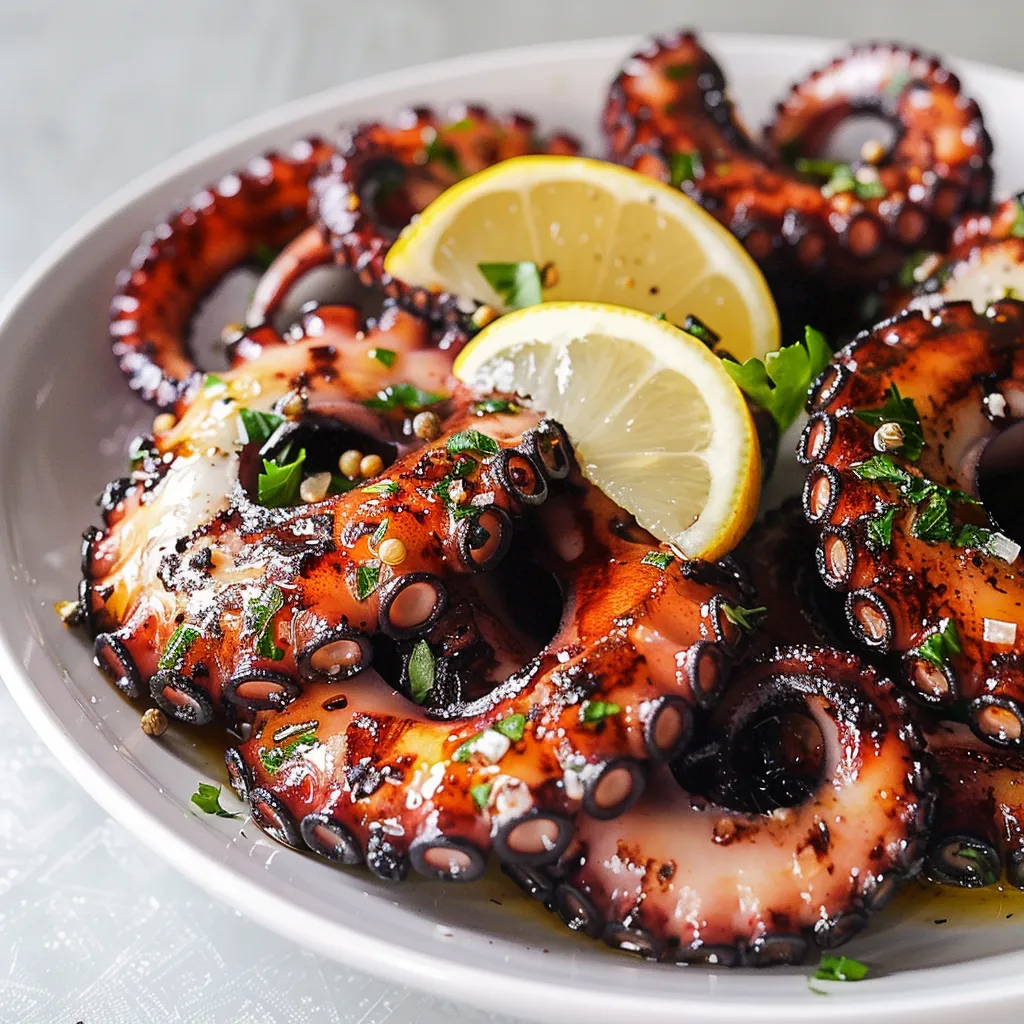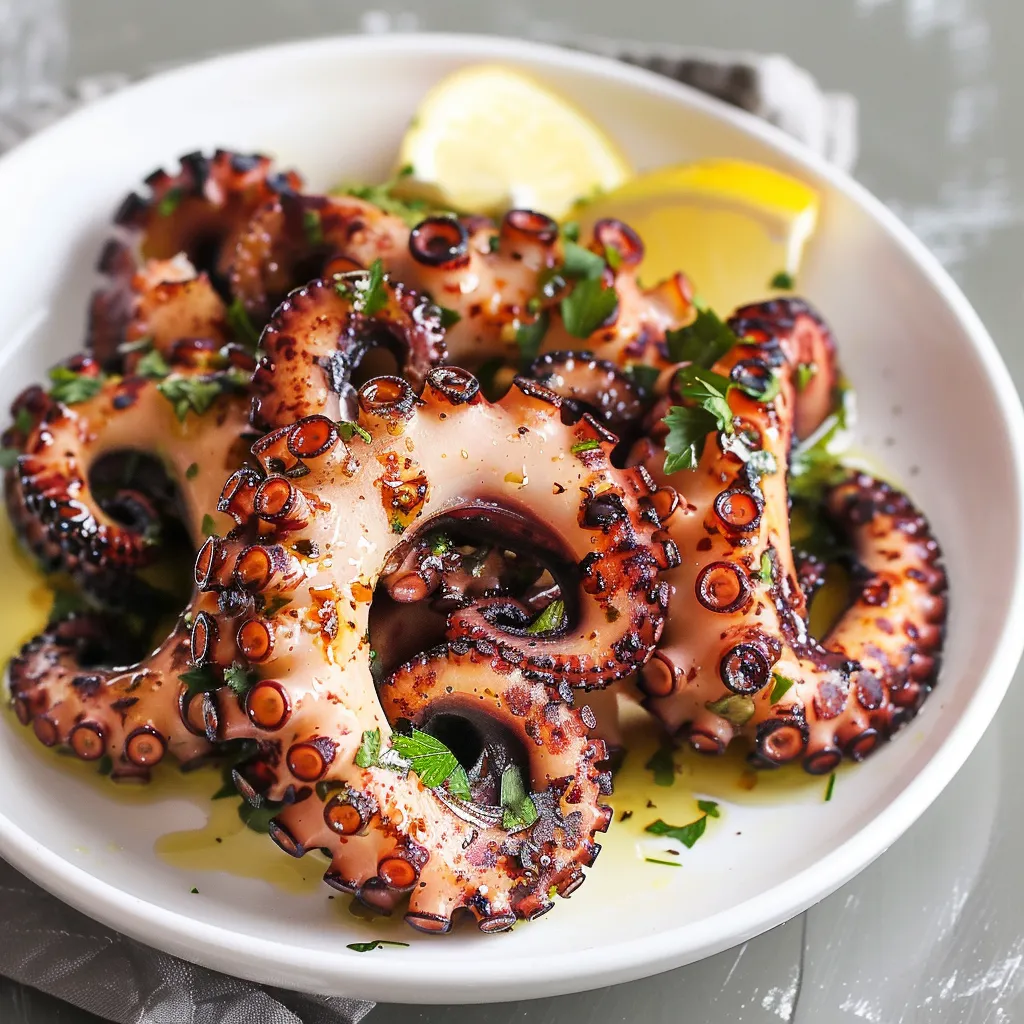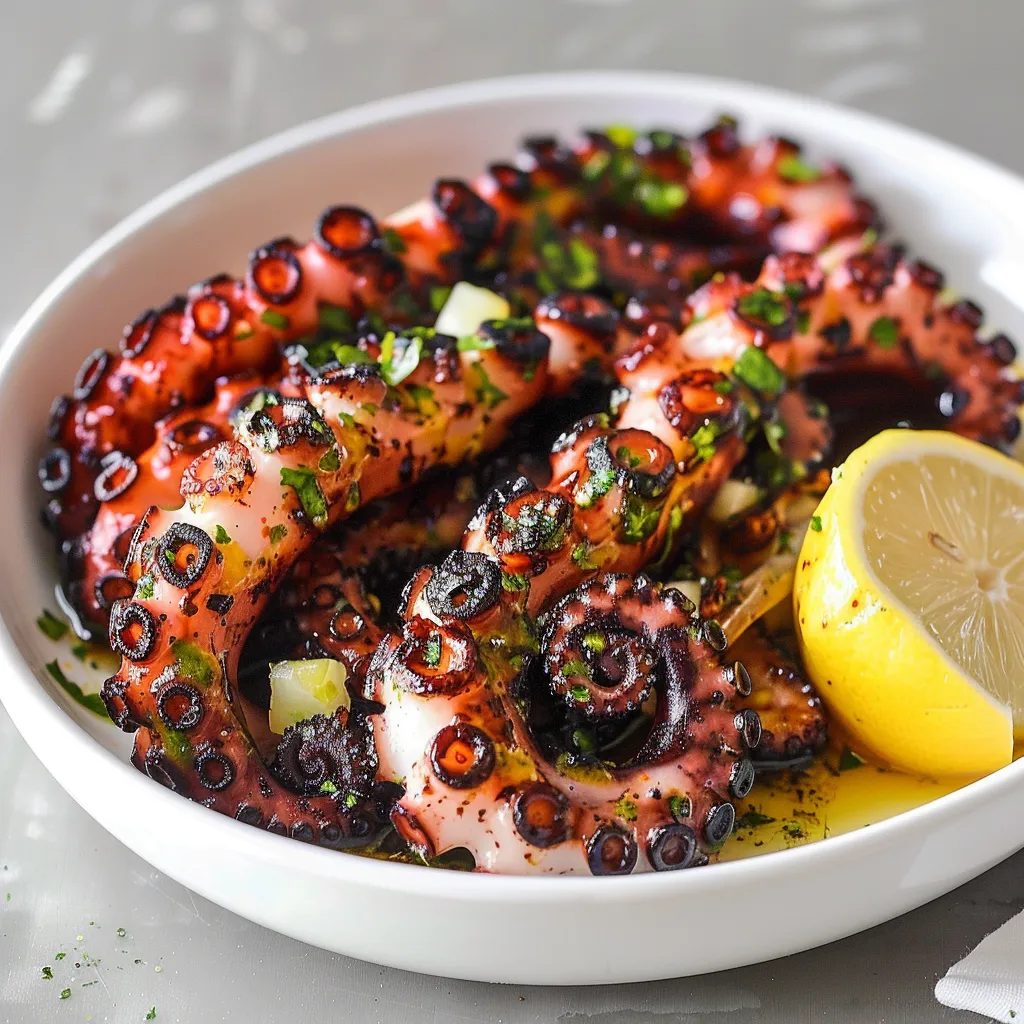 Pin it
Pin it
Discover the art of creating perfectly tender octopus with a smoky char and Mediterranean seasonings. This technique transforms potentially chewy octopus into a delicacy through careful boiling followed by a quick sear on the grill, resulting in meat that's both tender inside and crispy outside.
After years of experimenting with octopus preparation, I've found that the key lies in the initial boiling time. Too short and it stays chewy, too long and it becomes mushy. The sweet spot occurs when the meat offers just slight resistance to your fork.
Essential Components
- Fresh octopus: Provides the best texture and clean ocean flavor without any chemical additives
- High-quality olive oil: Enhances the natural flavors while creating a beautiful exterior
- Fresh lemon juice: Brightens the dish and balances the rich, smoky notes
- Garlic: Infuses the meat with savory depth during the resting period
- Mediterranean herbs: Complement the natural sweetness of the octopus
Perfect Preparation
- Initial Tenderizing:
- Submerge whole octopus in vigorously boiling water, watching as tentacles curl naturally. Reduce heat to maintain gentle bubbles, not a rolling boil. Test tenderness by piercing the thickest part with a fork, it should slide in with minimal resistance.
- Resting Period:
- Allow octopus to cool naturally in a single layer, letting the internal temperature gradually decrease. This critical step ensures the meat retains its moisture while developing optimal texture.
- Grilling Excellence:
- Brush prepared tentacles generously with olive oil, ensuring even coverage. Place on preheated grill, listening for the satisfying sizzle that indicates proper heat level. Watch for color change and slight charring before turning.
- Final Seasoning:
- Dress immediately while hot, allowing seasonings to meld with the warm meat. Let rest briefly before serving to allow flavors to develop fully.
 Pin it
Pin it
My Mediterranean grandmother taught me to dip the tentacles three times in boiling water before the final submersion - a tradition that seems to help create that perfect texture every time.
Table Planning
Present octopus on a rustic wooden board drizzled with best-quality olive oil. Add charred lemon halves, fresh herbs, and flaky sea salt for guests to customize their portions. Consider serving warm or at room temperature with crusty bread and aioli.
Flavorful Modifications
Create a Spanish version using smoked paprika and garlic. For Greek-style, add oregano and serve with ladolemono sauce. Japanese-inspired preparation includes brushing with soy sauce and mirin before grilling, finishing with togarashi.
Keeping Fresh
Store cooked octopus in an airtight container covered with olive oil for up to three days. Reheat gently on the grill or under the broiler just until warm. Avoid microwaving as it can toughen the meat.
 Pin it
Pin it
Grilled octopus represents the essence of Mediterranean cooking - simple preparation that lets quality ingredients shine. Through years of preparing this dish, I've learned that patience during the boiling process yields the most rewarding results. The transformation from intimidating seafood to tender, charred perfection never fails to impress guests and create memorable dining experiences.
Frequently Asked Questions
- → How long should I boil octopus before grilling?
- Boil for 40-60 minutes, using the rule of 45 minutes per 2 pounds. Test tenderness by inserting a fork where head meets tentacles - it should slide easily.
- → What size octopus works best for grilling?
- Baby, small, or medium octopus works best, though large octopus can also be used successfully.
- → How do I prepare octopus for cooking?
- Rinse under cold water, remove the beak from the center of tentacles, and if needed, remove eyes and innards. Consider freezing overnight to tenderize.
- → What's the best seasoning for grilled octopus?
- A mixture of lemon juice, extra virgin olive oil, garlic, oregano, and fresh herbs like parsley. Thyme, rosemary, and chives also work well.
- → What can I serve with grilled octopus?
- Serve with crisp salads, feta cheese, olives, and capers for a Mediterranean-style meal.
